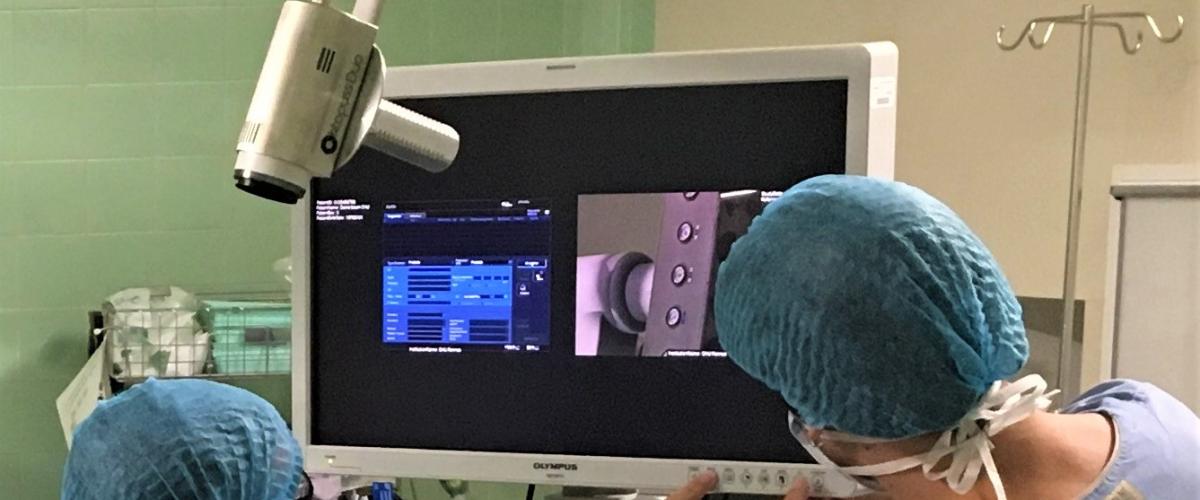The product of three-and-a-half years of research, the DICOM-RTV (for Real-Time Video) standard is a major achievement for the teams of the IRT b<>com and DICOM Standards Committee, and a big step in the e-Health market. This advance will make video accessible to a larger number of professionals in operating rooms, which will have concrete positive impacts on patients.
A new DICOM-RTV standard
Drafted by medical professionals and suppliers, the DICOM-RTV standard is the extension of DICOM for real-time exchanges.
Its main purpose is to make video in operating rooms, procedure rooms, and endoscopy rooms not dependent on a single manufacturer. The goal is to provide access to services that are currently too costly for hospitals.
Thanks to DICOM-RTV, there will be more compatible equipment, offering the opportunity to choose between different device makers.
A major step for e-health
This is progress toward concrete positive consequences for both medical professionals and patients. For instance, an experienced surgeon can watch an operation previously performed by a junior colleague if there was a complication requiring a new procedure, to reduce the risk of error. A major advance, given that out of 8 million operations a year in France, more than 50,000 avoidable serious errors occurred.
Emmanuel Cordonnier, Director of e-Health at b<>com: "France is world-famous for the quality of its medical education and research. The DICOM-RTV international standard is a new example of this. We're very proud that b<>com, a French research center based in Rennes, was the driving force behind these three-and-a-half years of research. This is a major step forward for e-Health. Much like the Internet does for computing, DICOM helps to create a consistent ecosystem that allows numerous independent players to provide applications, products, and services with high added value along the entire supply chain.”
Finally, with this new DICOM-RTV standard, b<>com has demonstrated the strength of its development policy, which is based on convergence between teams and research. Much of the IRT's expertise in standardization comes from its work as part of the Video Services Forum (VSF).



